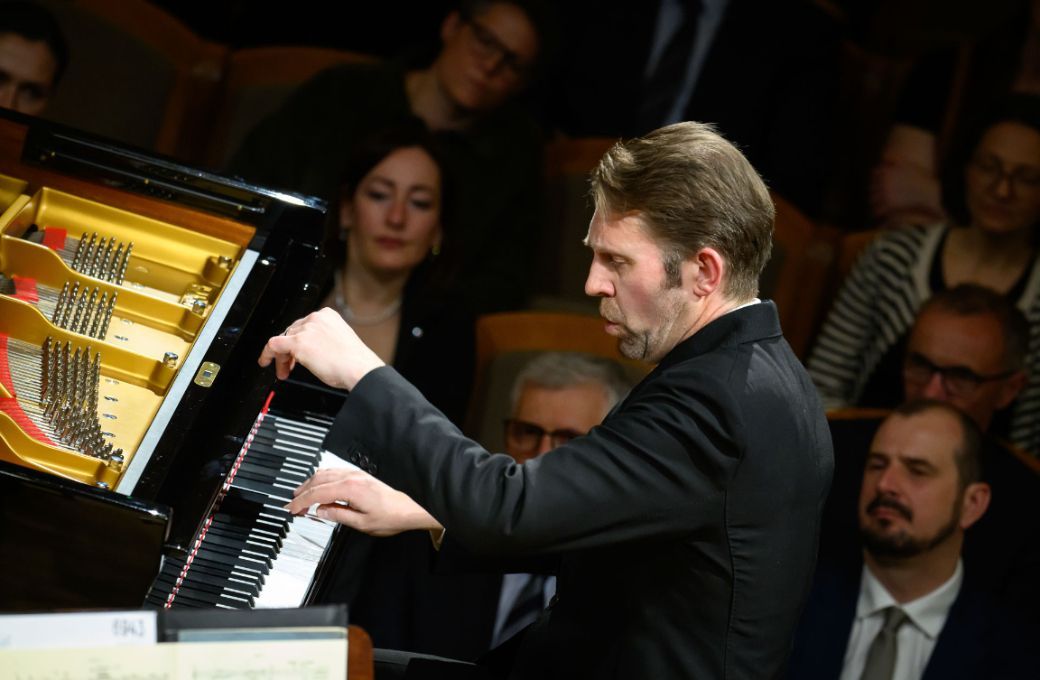A premiere, a star staple and a curiosity: not a typical night for the Czech Philharmonic, but as always, a thoughtful and well-played program. Principal Guest Conductor Jakub Hrůša struck a solemn tone to open Canto, a new work by contemporary Czech composer Pavel Zemek Novák. A spiritual piece with roots in Gregorian chant, it offered a series of moody contrasts – dark undertones anchored by heavy bass lines juxtaposed with high, bright strings – before ramping up a full orchestra sound that pulled together all the disparate, wandering lines into a powerful neoclassical melody. The unified sound reached for spiritual exultation without ever quite getting there, held back by its own weight. Hrůša showed a deft hand in finding nuances in the score and cellist Ivan Vokáč offered a fine solo turn.

Star soloist Leif Ove Andsnes joined the orchestra for Grieg’s Piano Concerto in A minor, a signature work that he first recorded in 1990, at the age of 20. He returned to it in more detail in the early 2000s, a trait that carried over to this performance, which featured the pianist’s usual strengths – brilliant technique, hold-your-breath sensitivity, absolute command of the material – along with an unusual degree of warmth. Andsnes plays with an intensity that can lend an air of formal reserve, or even a frosty edge, especially to dramatic works like this one. But on this occasion he took an understated approach to the familiar theme in the first movement, building it slowly to the blazing cadenza, then took the volume down to a whisper in the slow movement, and seemed to revel in a freewheeling finale. It was like Andsnes was taking an old friend out for a ride, relaxing into the lush atmospherics provided by Hrůša and letting the music speak for itself. The grin on his face as he took bows suggested it had been a pleasurable reunion.
As its name suggests, Vladimír Sommer’s Vocal Symphony is a hybrid – and a disturbing one. A narrator, mezzo-soprano vocalist and full choir provided piercing renditions of texts by Kafka, Dostoevsky and Italian novelist and poet Cesare Pavese backed by a dizzying score. Kafka invokes the terrors of the night, Dostoevsky tells of a pony clubbed to death, and the title of Cesare’s poem says it all: Death Will Come and Will Have Your Eyes. If the piece was intended to reflect the dark era in Czechoslovakia when it was composed (1958), it succeeded very well, with distorted melodies and off-color instrumentation creating a sense of unease, a world askew. The music simmered, rose with bursts of percussion and then exploded into a maelstrom of sound before departing quietly with death, all expertly drawn by Hrůša. Most impressive was the clarity he maintained amid the tumult, neatly integrating all the random phrases and odd noises into a coherent whole. Markéta Cukrová is an experienced contemporary music vocalist who sang with power and a convincing sense of dread. Narrator Martin Myšička put some bite into his small part. And the Prague Philharmonic Choir was as sharp as ever, bringing the assault on the pony to vivid life.
When Hrůša is on the podium at the Rudolfinum it’s also like a reunion of old friends. This one made some heavy demands on the players, who responded with the alacrity and precision that comes from working with a longtime colleague. In all, a challenging but thoroughly satisfying evening.


